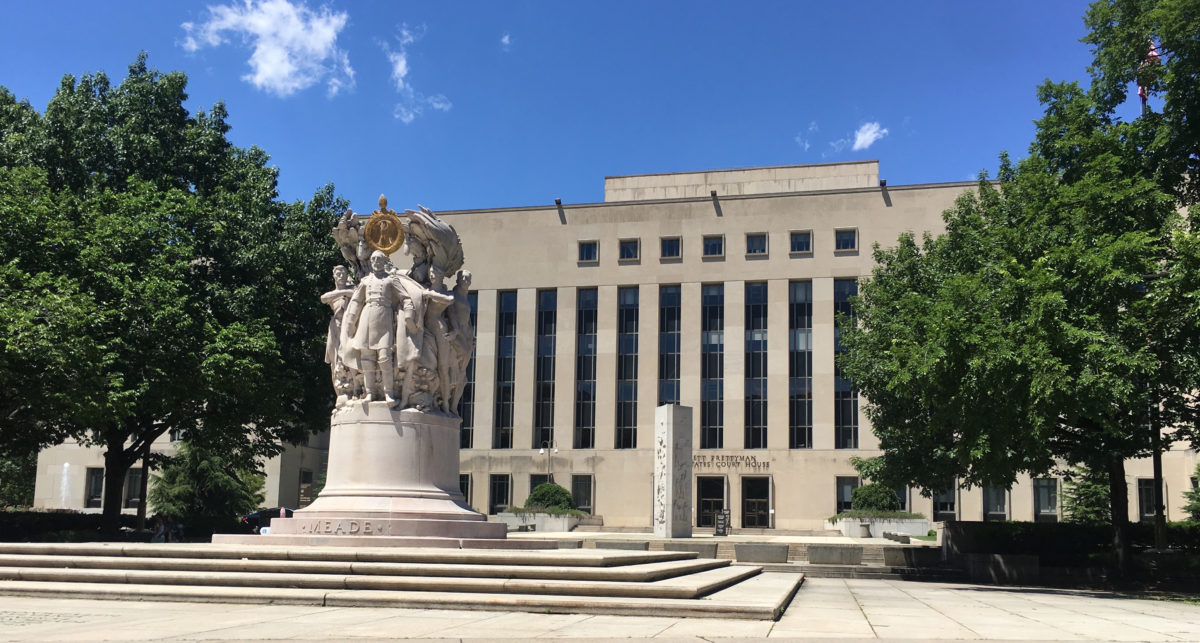The D.C. Circuit releases opinions on Tuesdays and Fridays. We read them all so you don’t have to. On Tuesday (Aug. 14), the court issued four opinions:
American Institute of Certified Public Accountants v. Internal Revenue Service. In 2014, the IRS created an annual program, without notice and comment, that allowed certain tax preparers to distinguish themselves as having jumped through a series of hoops (comprehension test, annual education seminar, etc.) to get a gold star—to get a limited right to represent taxpayers in IRS audits of tax returns—that gets published by the IRS. The American Institute of Certified Public Accountants challenged the program under the Administrative Procedure Act, but the district judge ruled the group did not have standing. In an opinion by Judge Ginsburg (joined by Judge Rogers and in part by Judge Griffith), the court reversed and held that the AICPA had statutory and constitutional standing to make the challenge largely because the group supervised a number of the tax preparers implicated in the new program, which expanded the group’s supervisory responsibilities. But the court didn’t stop there. To avoid “a waste of judicial resources,” the court also addressed the merits and sided with the IRS. Ginsburg said that the IRS had sufficient statutory authority to create the program under its ability to “regulate the practice of representatives of persons before the agency” and that the agency did not need to engage in notice-and-comment rulemaking under the APA because the program did not bind “private parties or the agency itself with the force of law.” Judge Griffith concurred with all of the majority opinion except its conclusion “that the IRS could lawfully issue” the program “without public notice and comment.”
Ranowsky v. National Railroad Passenger Corporation. In 2014, Kathleen Ranowsky, a woman in her early 60s, was fired from Amtrak’s Office of the Inspector General after her boss said he “lost confidence” in her work despite giving her a favorable performance review several weeks earlier. Believing that she was fired because of her sex and age, Ranowsky filed a charge with the Equal Employment Opportunity Commission. After Amtrak declined two of her subsequent applications for re-employment, Ranowsky then filed a lawsuit alleging that her firing violated anti-discrimination laws and that Amtrak’s two refusals to re-employ her were equally discriminatory and done in retaliation for her filing with the EEOC. The district judge ruled in favor of Amtrak on all of Ranowsky’s claims and also denied her motion to sanction Amtrak for some of its non-responsive actions during discovery. In an opinion by Judge Pillard (joined by Chief Judge Garland and Judge Sentelle) the court fully affirmed the district judge’s rulings after determining that Ranowsky had failed “to turn her suspicions into a triable inference of discrimination” and that her requested sanction was “unwarranted.”
ABC Aerolineas, S.A. de C.V. v. U.S. Department of Transportation. Delta Airlines and Aeromexico, the flag carrier airline of Mexico, wanted to coordinate their passenger flights on routes between the United States and Mexico. As a condition of approving the cooperation agreement and granting antitrust immunity, the Department of Transportation required the airlines to give up 24 pairs of their takeoff and landing slots at Mexico City’s Benito Juárez International Airport. Those slots were distributed to other airlines to promote more competition. The airline Interjet, however, was not given any of the new slots because it already had more than 300 takeoff and landing slots at that airport. Interjet challenged the department’s actions under the Federal Aviation Act and argued the actions were arbitrary and capricious under the Administrative Procedure Act. In an opinion by Chief Judge Garland (joined by Judges Silberman and Sentelle), the court rejected those challenges, saying the department’s conditions on the Delta-Aeromexico agreement, and its distribution of the takeoff and landing slots, were valid ways to ensure competition on air routes between the United States and Mexico.
Green Gas Delaware Statutory Trust v. Commissioner of Internal Revenue Service. When garbage decomposes in landfills, it produces gas that can be used to generate energy. Two Delaware trusts purchased the rights to produce landfill gas at 24 landfills throughout the United States. Between 2005 and 2007, the trusts claimed $11.7 million in tax credits under a statute that provides tax credits to companies that sell energy from “nonconventional” sources. But after an audit, the IRS disallowed the vast majority of the trusts’ tax credits because only five of the 24 landfills had equipment capable of turning landfill gas into electricity. At the other 19, the gas simply ended up back in the atmosphere. The U.S. Tax Court agreed that the tax credits were not allowed under the statute, and on appeal, so did the D.C. Circuit. Chief Judge Garland (joined by Judges Tatel and Millett) pointed to language in the statue suggesting that “only fuels that are capable of substituting for oil—that is, only fuels that can be used to generate energy—are eligible to receive tax credits.” Gas that is merely released into the atmosphere doesn’t count.
![]()

